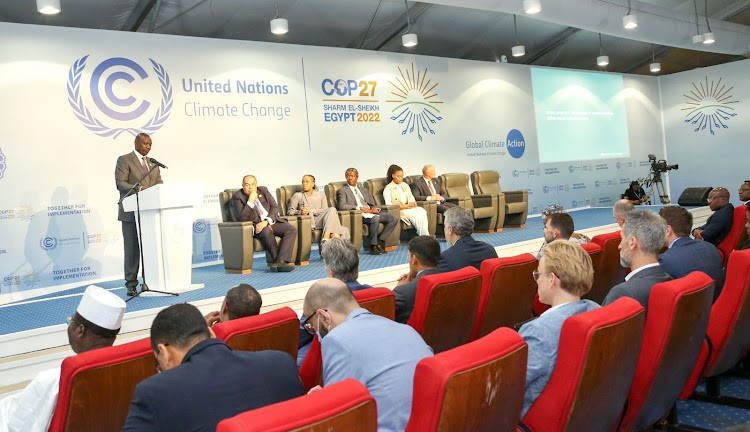We are excited to announce that Brink is now part of Africa Practice. Learn more
What to make of the new African Carbon Markets Initiative

Climate finance has been front and centre of COP27. Low-income and developing countries have striven for negotiations to reflect their interests and needs in two key areas. Firstly, pressing developed nations to meet and improve their commitments; and secondly, negotiating for the inclusion of compensation for loss and damage – the unavoidable impacts resulting from climate change – on the agenda.
African countries have been at the forefront of these efforts. Newly-elected President of Kenya William Ruto described the “lengthy discussions at COPs, with [their] stalling, delaying tactics and procrastination that have hampered implementation and delivery” as “cruel and unjust.” Ruto’s frustration at the lack of progress on the climate agenda and developed nations’ failure to honour their finance pledges is widely shared across the continent.
A surprise announcement
Less expectedly, Ruto declared that “Kenya’s next significant export will be carbon credits,” while speaking at the launch of African Carbon Markets Initiative (ACMI). The ACMI – which has also drawn support from Nigeria, Malawi, Gabon and Togo – aims to mobilise USD 6 billion in capital by 2030, and USD 120-200 billion by 2050, by providing a roadmap to scale voluntary carbon markets across Africa.
Carbon credits remain contested, often with justification. The ACMI has already drawn criticism from climate activist groups, which point out that carbon trading can act as a disincentive from decarbonisation by shifting emissions from one place to another. Another recurring and major concern is around the quality and integrity of some carbon credit schemes, and whether they in fact contribute to mitigating or reducing emissions.
A critical juncture
Yet carbon credits and the ACMI speak to the scale and criticality of climate financing required on the continent. While developing countries have thus far repeatedly failed to meet their pledge of mobilising annual climate funding of USD 100 billion, the African Group of Negotiators has called for the target to be raised to USD 1.3 trillion per year by 2030.
Far from being a substitute for decarbonisation efforts – and in the absence of more stringent or mandatory emissions reductions on highly polluting industries – carbon credits can play a complementary role, driving additional climate impact and private capital to developing countries.
In the case of countries with biodiversity and ecosystems that store and absorb substantial amounts of carbon, such as those of the Congo Basin, carbon credits provide incentives for conservation. Gabon, for instance – where 88% of the territory is covered by forests – intends to launch the largest-ever issue of carbon credits this year, with half of the proceeds set to be dedicated to conservation. The success or failure of Gabon’s issuance promises to determine the prospects for African carbon markets.
About the author
Alex Vergé is a consultant at Africa Practice. The above represents his views and not those of Africa Practice. Alex can be contacted at [email protected].
 PSCU
PSCU
Proud to be BCorp. We are part of the global movement for an inclusive, equitable, and regenerative economic system. Learn more


